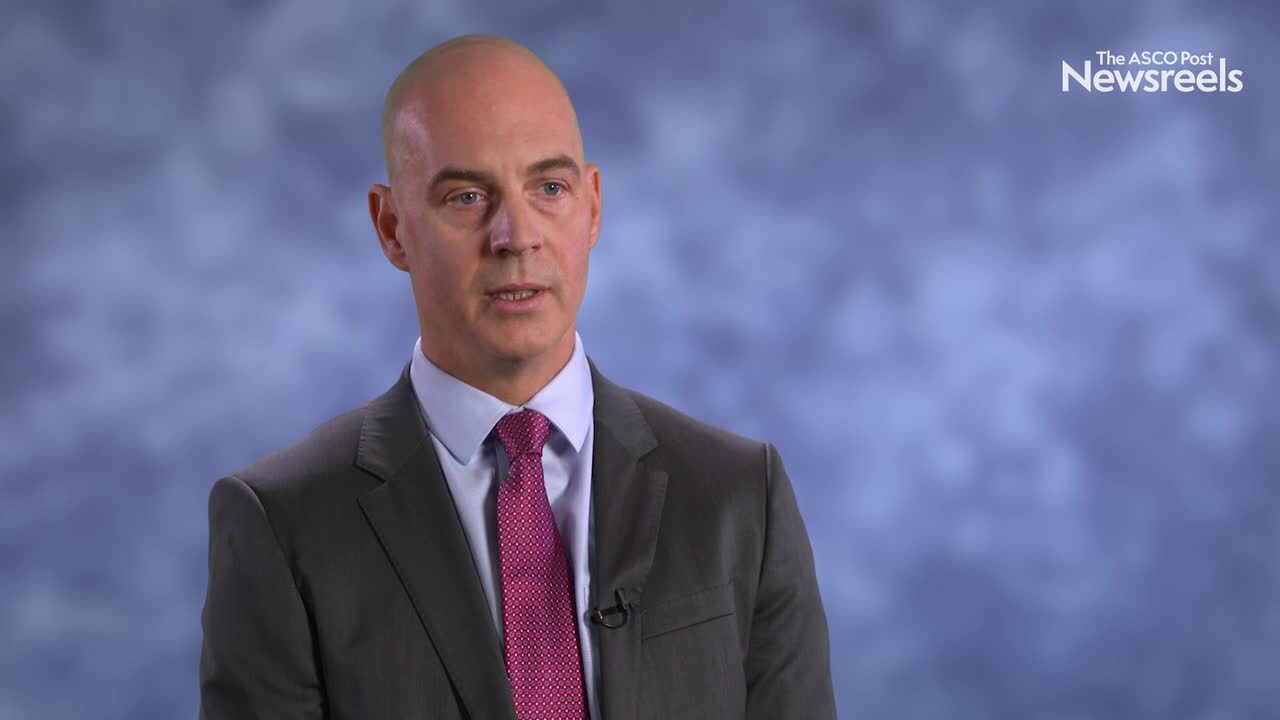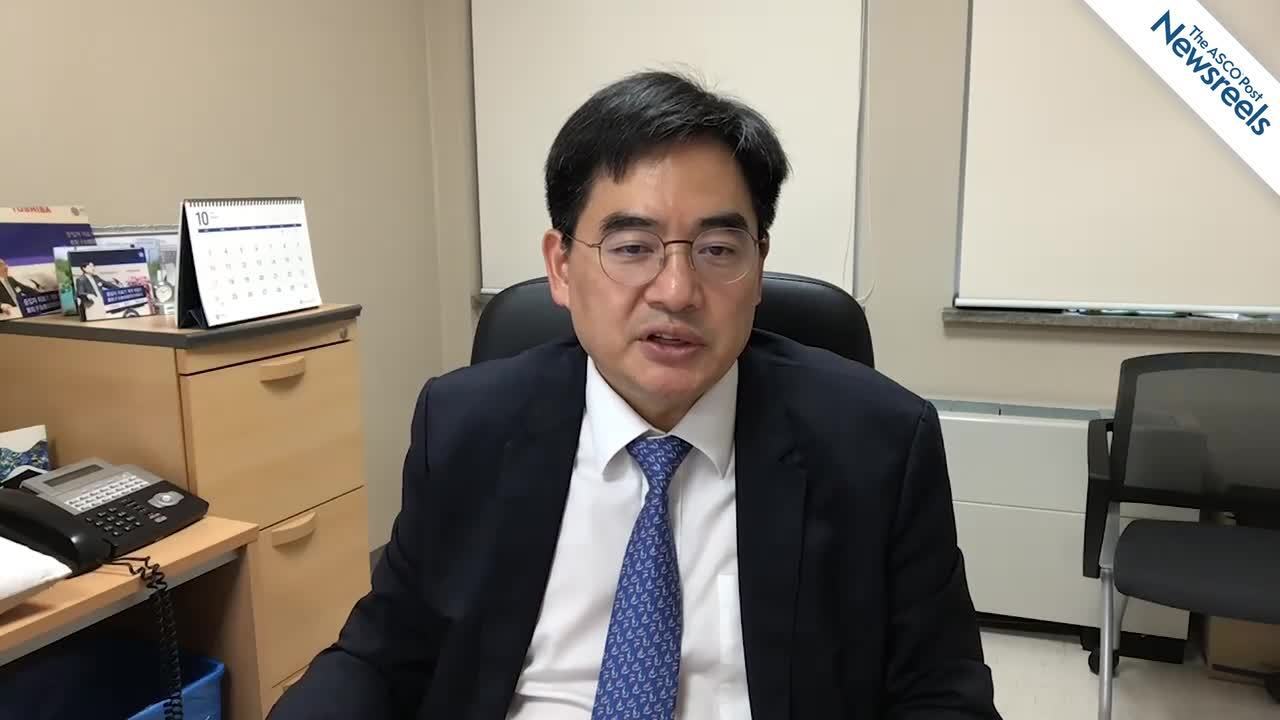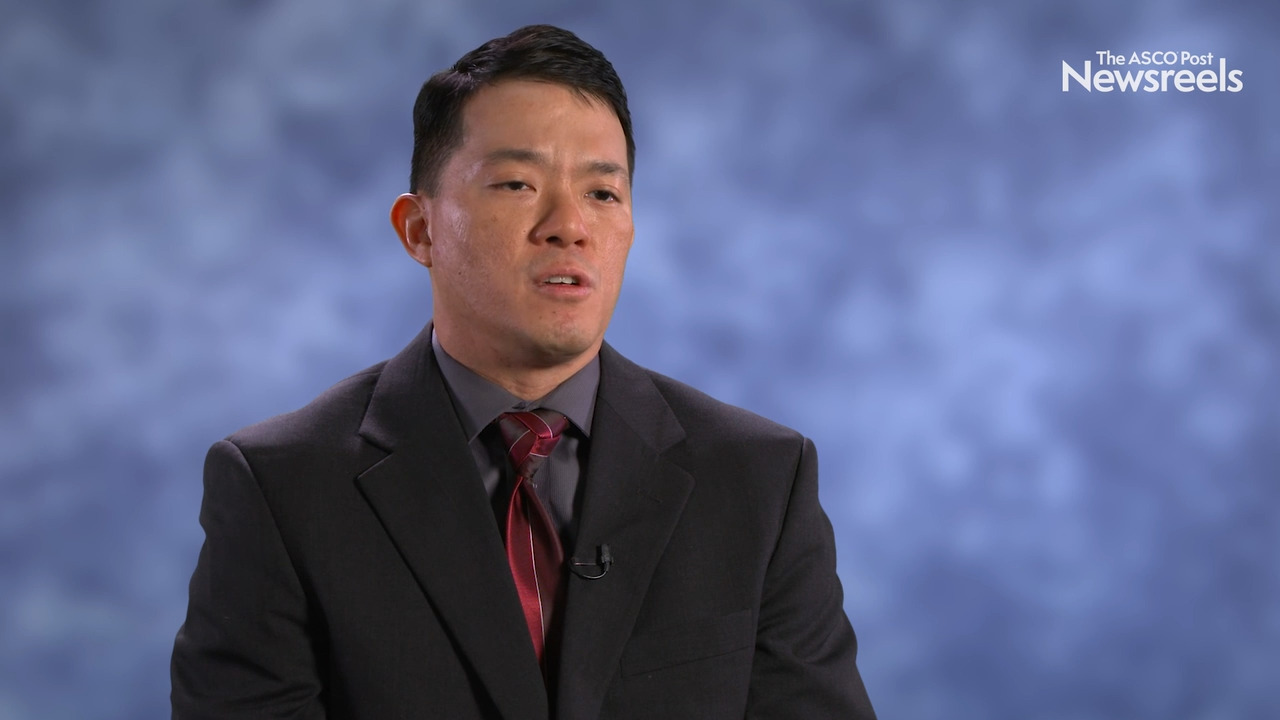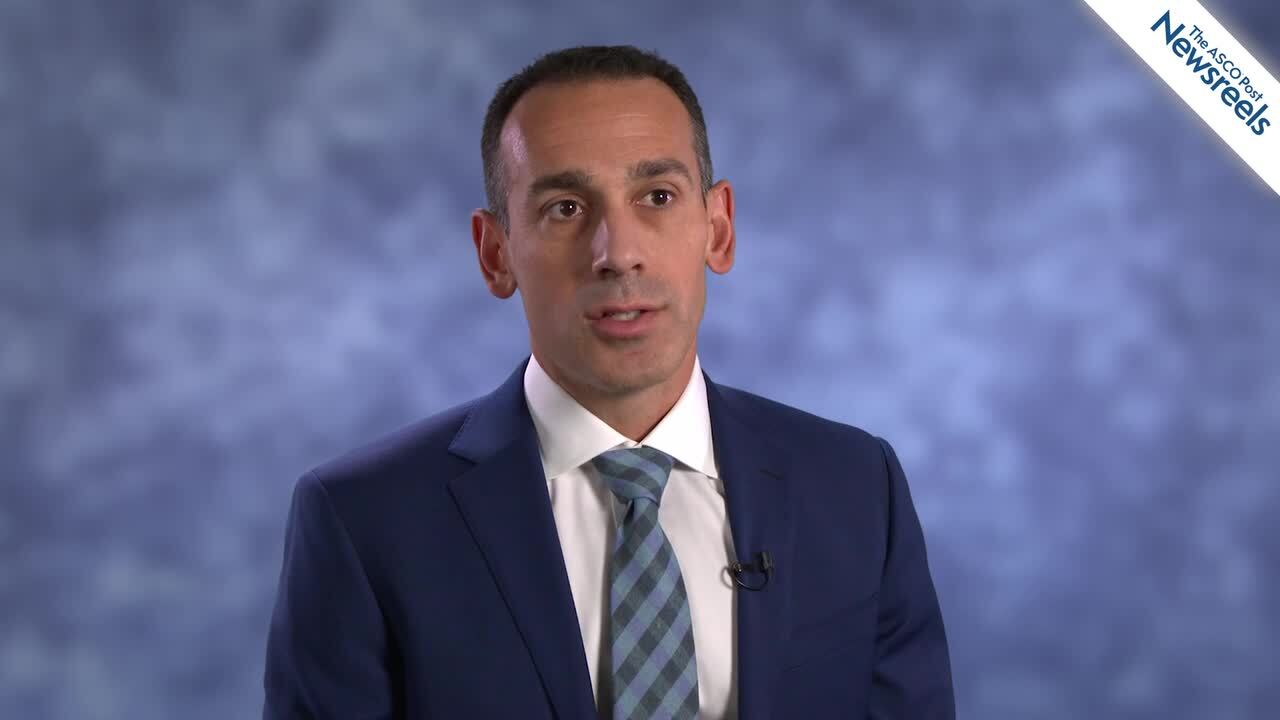Erin Murphy, MD, on Low-Grade Glioma: Neurocognitive Function Following Treatment
2021 ASTRO Annual Meeting
Erin Murphy, MD, of Cleveland Clinic, discusses new data that show no apparent difference in cognitive performance up to 2 years post-treatment among adults with low-grade glioma who were treated with concurrent radiotherapy and temozolomide (Abstract 3258).
The ASCO Post Staff
Mark K. Buyyounouski, MD, MS, of Stanford University, discusses phase III results from the NRG Oncology GU003 trial, which showed that, post-prostatectomy, using fewer—but higher—doses of radiation does not appear to increase long-term side effects or reduce quality of life when compared with conventional radiation treatment (Abstract 3).
The ASCO Post Staff
Yongbae Kim, MD, of the Yonsei Cancer Center and Yonsei University College of Medicine, discusses findings that showed the use of internal mammary area irradiation (IMNI) in regional nodal irradiation did not significantly improve disease-free survival for women with node-positive breast cancer. However, patients with medially or centrally located tumors may be considered for treatment with IMNI (Abstract 2).
The ASCO Post Staff
Daniel J. Ma, MD, of the Mayo Clinic Alix School of Medicine, discusses results from a phase III study of patients with HPV-associated oropharyngeal squamous cell carcinoma. Comparing a 2-week course of de-escalated adjuvant radiation therapy with the standard 6-week course, investigators found that the shorter treatment appeared to have less toxicity, higher quality of life, and similar disease control as the longer standard-of-care treatment (Abstract LBA1).
The ASCO Post Staff
Shauna Campbell, DO, of Cleveland Clinic, discusses results from her study that showed hypofractionated intensity-modulated radiation therapy (H-IMRT) in the definitive or postoperative treatment of head and neck cancers using ≥ 50 Gy in 20 fractions appears to be safe and well tolerated with modest toxicity. Dr. Campbell suggests that prospective studies comparing the safety and efficacy of H-IMRT with those of conventionally fractionated IMRT are warranted (Abstract 2313).
The ASCO Post Staff
David A. Palma, MD, PhD, of Ontario’s London Health Sciences Centre, discusses results of the ORATOR2 study, which compared two treatment options that could be de-escalated for patients with HPV-associated oropharyngeal squamous cell carcinoma: a lower-dose radiation approach (6 weeks instead of 7, often with chemotherapy) vs a transoral surgical approach (with low-dose radiation afterward, for 5 weeks) (Abstract LBA2).





